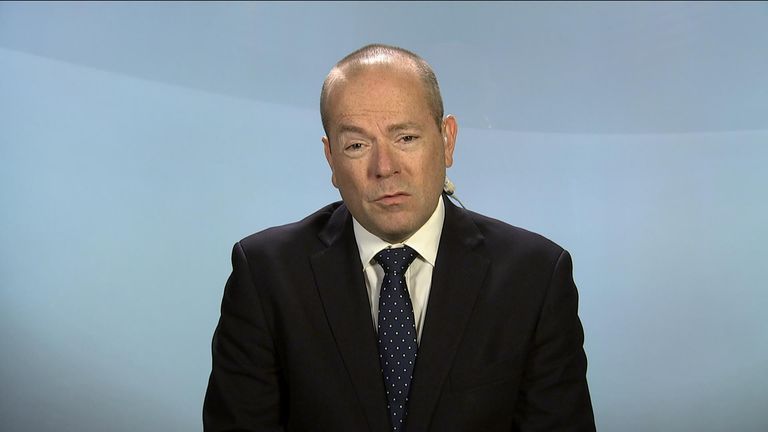FCA reveals new protections for investors as Woodford saga rumbles on
Sky's Ian King outlines the background to the new approach to illiquid assets being taken by the Financial Conduct Authority.
Tuesday 1 October 2019 16:03, UK
Do you know what investments are held by the funds to which you have committed your hard-earned savings?
The recent turmoil surrounding Woodford Investments, the business founded by the celebrity fund manager Neil Woodford, revealed that many people did not.
The hundreds of thousands of people who entrusted their savings to Mr Woodford were shocked to learn that the money was not, in some cases, invested in the big, reliable blue-chip stocks with which he built his reputation.
Instead, large chunks of it had been invested in illiquid investments, chiefly private companies whose shares were not easily tradable. It meant that, when savers began asking for their money back, Mr Woodford was forced to "gate his funds while he sold shares to raise the cash needed.
Three months on from Mr Woodford gating his funds, they remain gated, with investors unable to get their money back.
The Woodford affair was condemned in the strongest possible terms by Mark Carney, governor of the Bank of England, who in June told MPs on the Treasury select committee that funds which promise investors instant access to their cash, while investing that cash in illiquid assets, were "built on a lie".
Yet the Woodford saga was the second time in three years that savers have learned of the danger of having their money in funds that have invested in illiquid assets.
In June 2016, a clutch of fund managers including household names such as Aviva Investors, M&G, Standard Life and Columbia Threadneedle were forced to gate funds they were running which specialised in investing in commercial property.
They were forced to do so when thousands of investors, fearing a property crash in the wake of the vote to leave the EU, asked for their money back.
Again, because these fund managers could not simply sell an office block or a shopping centre overnight to raise ready cash, investors had to sit and wait for the return of their money.
The Financial Conduct Authority, the main City regulator, confirmed on Monday that it will go ahead with rule changes it first proposed in October last year to prevent a repetition of such events.
There are two central elements to these changes.
The first is that a new category of fund, "funds investing in inherently illiquid assets" (FIIA), will be created. Such instruments will be subjected to extra regulations.
These will include publishing risk warnings in financial promotions, increased oversight of their deposits, extra disclosure to regulators of how their funds are being run, and providing contingency plans outlining how they will give investors their money back if required to do so.
The second is that, when an independent valuer decides there is "material uncertainty" regarding the value of more than a fifth of a fund's assets, dealing in it will have to be suspended.
Christopher Woolard, the FCA's executive director of strategy and competition, said: "We want people to continue to be able to invest in illiquid assets, such as real estate, through open-ended funds but it is important that they are appropriately protected.
"The new rules and guidance are designed to protect the interests of investors particularly during stressed market conditions. This includes those wishing to redeem their holdings, as well as those wishing to remain invested in the fund.
"We also want to make it clear that authorised fund managers are responsible for managing the liquidity risk in their funds and acting in the best interests of investors."
There are both upsides and downsides to the new approach.
One potential danger is that some funds are likely to see dealing in them suspended more often than in the past. On the plus side, the rule changes should make runs on funds less common, while also giving investors a better understanding of how their savings are being deployed.
The FCA had a dilemma in coming up with these rule changes. It was clearly keen to enable savers to continue deploying some of their money in funds that invest in illiquid assets, but clearly felt investors needed more information about the funds in which they are saving.
It is also worth noting what the FCA has not done. There was an expectation, after what happened three years ago, that the regulator might oblige fund managers specialising in commercial property funds to hold big cash buffers. This would have run the risk of dragging on a particular fund's performance and would not have made such funds as attractive. Nor has the FCA abolished the practice of gating, as some feared it might, arguing this is a better alternative to preventing fund managers from investing in certain types of assets altogether.
So these changes are likely to be regarded by fund managers as pragmatic.
The emphasis, in future, is clearly also going to be on ensuring more effective communication with investors.
The events of June 2016 with the commercial property funds and the events of this year, with Woodford, revealed that a startling number of people had little idea what their money was invested in. That has to change.






